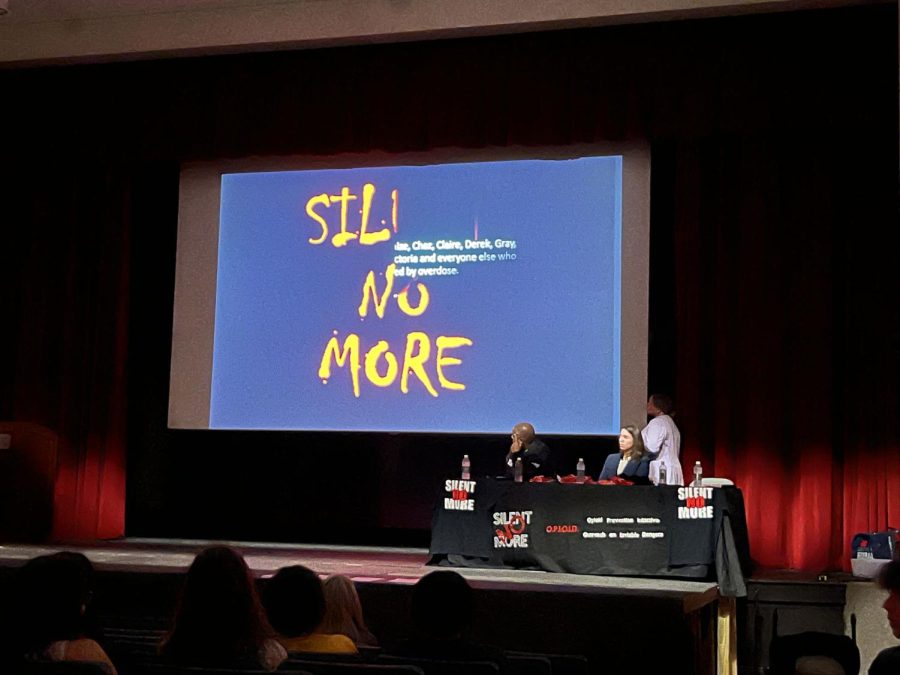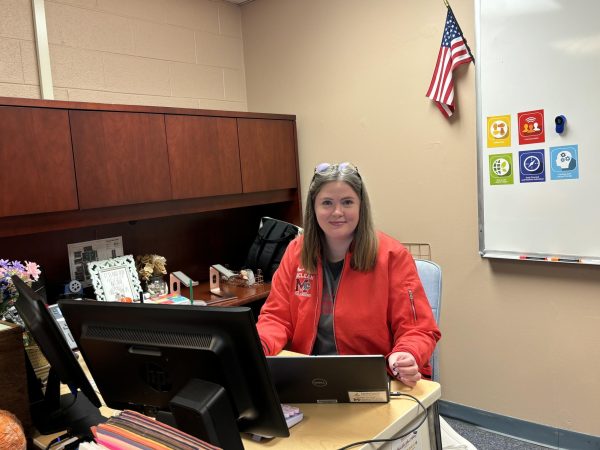McLean hosts “Silent No More” assembly
Juniors hear from various speakers on the dangers of drug use
In an effort to battle the current fentanyl crisis, McLean hosted an assembly in part with the organization “Silent No More” on June 1st to educate students on the dangers associated with substance abuse.
The assembly took place during Highlander Time and was exclusive to the junior class.
“[We decided to hold the presentation for only the juniors] because their class will be the leading class next year, and it is part of [their] responsibility to help the younger ones,” Principal Ellen Reilly said. “[We also know that they will be] going out on their own soon [and that] when you go to college, it gets harder to say no so [we wanted to ensure that everyone] learns how to say no now.”
The presentation started off with firsthand accounts and personal stories from speakers whose families struggled with drug abuse throughout their lives, making the idea of falling victim to addiction much easier for students to grasp.
“Hearing the stories from those who had been personally affected made it feel so much more real,” junior Isabella Yawata said. “It was very impactful as people don’t usually understand the full gravity and consequences that come along with drug abuse until something bad happens to them or a loved one.”
Additionally, students had the opportunity to hear from both a Drug Enforcement Administration (DEA) agent and a federal prosecutor, learning fast facts about the dangerous effects of fentanyl use and its increase in the last decade.
“I just hope that when students come across drugs, they realize its consequences [and] that their actions now can affect their life down the road,” DEA agent Tyrone Guyse said. “Everything they do, as they get older, their decisions, there’s more consequences so hopefully, something we said here will at least make them pause and think about [the actions they take].”
The assembly was also interactive as students were asked to participate in answering and asking questions, receiving tokens in the form of red and black t-shirts and wristbands with messages of “living drug free” and “thinking twice.”
Overall, the event was informative and cautionary, making the risks associated with substance abuse much more relatable for students who can struggle to understand that anyone can become a victim of addiction.
“[My hope is that this event can] show students all the dangerous things that could trickle into what could end up being even that first time [using drugs and that this assembly could persuade] them to never even start,” Reilly said. “I believe that there’s never enough we can keep telling [to students about drugs] so the more information we can provide, the better.”
Your donation supports the McLean High School's independent, award-winning news publication.











